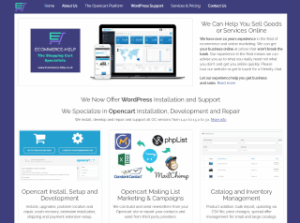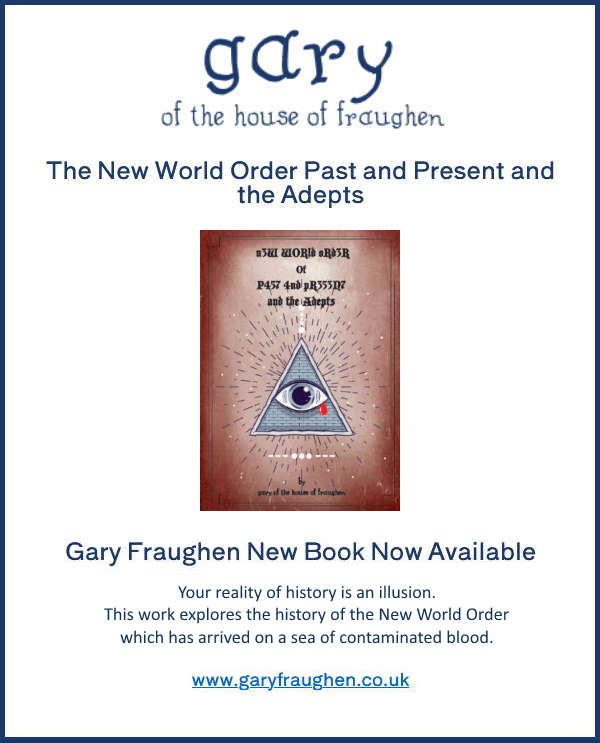Is Smart City Doublespeak for Prison City?
Sat 11:32 am +00:00, 3 Sep 2022
| |
“No matter how much rhetoric about progress and benefits to society is deployed in the promotion of [the Smart City] concept, it has the potential to develop into a dystopic future. Prison cities, which instead of guards, use cameras and microphones, hooked to AI algorithms counting social credit scores; characterised by geofencing – limits on movement and/or area where a person can buy products and services, possibly loss of bodily autonomy.” – Wikispooks
Since 25 August, Wikispooks has been the victim of a DNS attack and their website is inaccessible for most. We are sharing some of their articles until their website is, once again, accessible to all. To avoid complications with sharing our article we have not included the many embedded links on the Wikispooks page, some of which may be links to other pages within their website. However, we have attached a pdf copy of their page which includes those links. Please bear in mind that their pages are edited and updated from time to time.
Smart City by Wikispooks
A smart city is a technologically modern urban area that uses different types of electronic methods and sensors to collect specific data. Information gained from that data is used to manage assets, resources and services efficiently; in return, that data is used to improve operations across the city. [1][2]
Official narrative

Concerns
No matter how much rhetoric about progress and benefits to society is deployed in the promotion of this concept, it has the potential to develop into a dystopic future. Prison cities, which instead of guards, use cameras and microphones, hooked to AI algorithms counting social credit scores; characterised by geofencing – limits on movement and/or area where a person can buy products and services, possibly loss of bodily autonomy (i.e., a say in your own health decisions).
Geofencing
The 15/20-minute neighbourhood as a concept has all necessary amenities supposed to be within 15/20 travel: hospitals, schools, work, shops, etc. – The problem is an inhabitant cannot move/interact with the infrastructure beyond that 15/20 min radius. The doors would not open, machines will not give out food. It is to stop too much travelling and lowering carbon footprint to help fight with climate change.
Facial recognition
The microphones and cameras are to record inhabitants for the purposes of control and social credit score. Allegedly to improve services and safety. Will enable points being awarded and fines for things like walking on a red light, etc.
Fourth Industrial Revolution
The Fourth Industrial Revolution is closely connected to the concept of the smart city, with which a high number of jobs will be cut due to robotisation.
Practical Implications
https://www.youtube.com/watch?v=_3IZMnBeqdw
The whole program ties in with how Greta Thunberg, as a representative of “civil society”, wasgiven lots of attention at the 2019 and 2020 WEF summits, at which she stated that “our house is on fire”, calling for “urgent action, stressing the need for ‘real zero’ emissions.”[5]
Several “stakeholders” have pronounced to the WEF how they envisaged a Great Reset[6]:
- Microsoft’s Brad Smith stated, “As people return to work, we can continue to expect digital technology and data to fundamentally be the infrastructure for this decade and for the Great Reset.” He further stated that (an unspecified) ‘we’ need to sustain people’s (‘their’) trust. “This means protecting their privacy, their security, and ensuring that new technologies, especially artificial intelligence are deployed responsibly around the world.”
- Kristalina Georgieva from the IMF stated that “The digital economy is the big winner of this crisis,” and suggested “public and private investments for low-carbon industries, bizarrely stating – this from the institution that has done most to deepen world inequality -that she wants a “fairer” society.
- UN Secretary-General António Guterres stated, “We build must equal, inclusive, sustainable societies, that are more resilient in the face of pandemics and climate change”.
- Ajay Singh from MasterCard wanted to “bring the private sector to the party”, but where one needed enormous trust between the private and public sector for this to actually work”.[7]
- Saadia Zahidi, Head of the New Economy and Society at the World Economic Forum opined “Businesses have an opportunity to affect change in not just their own workforces, the communities that they represent, but through their advertising, through their products, they have the power to change society”. He also envisages “a completely different approach to the content and delivery of education,”[8] an “education 4.0”[9]
- Geraldine Matchett, CFO at Royal DSM, sees the crisis as a great equaliser between the sexes in terms of constraints. She wants to reinvent the workplace, “where the 9-5 or 9-10” [sic] depending on the kind of job, “is gone”.[10]
An article in The Hill from June 2020 mentions:[11]
On 4 February 2022, Neil Clark tweeted:


“Owning nothing” does of course not translate to communism; the idea is[13] that people are required to rent, lease or pay other forms of interest on everything, from cars to household utilities from a superclass who owns everything.
Martin Armstrong suggests (see his quote below[14]) that “The Great Reset” is just another word for monetary reform. The IMF agrees: We must seize this new Bretton Woods moment. – (Kristalina Georgieva, IMF Managing Director Washington, DC, October 15, 2020[15])
Monetary reforms are a systemic (mathematical) necessity in our current monetary system due to the exponential growth of debts and money supply over time. Armstrong and others (Bernd Senf) agree that approximately every 70 years a major monetary reform must happen. The history of financial “resets” shows an astounding high count of incidences where old money is declared invalid and a new type of money is decreed.
In this view, Klaus Schwab is not a visionary; his “job” is simply to announce the inevitable with a lot of gibberish decorating the cold hard fact, that exponential growth is not sustainable in the long run.[16]The SDS may have learned about these money mechanics by observing the build-up phase to the great depression in 1929 and hundreds of collapses of currencies over the past centuries.
Lockdowns, sanctions and most importantly the “green agenda” (CO²-punishments) all serve to drive down economic activity, which might be a precondition for a soft landing as opposed to a crash scenario like in 1929. Interestingly, sanctions (leading to very high oil prices), lockdowns and CO² taxes seem to continue, even after the “cause” they were purportedly introduced for ceases to exist. Putin, as “WEF global leader”, may therefore “support”[17][18] the drive towards a “reset” with his Invasion of Ukraine.
Own words
The project aims to connect lower carbon footprint and “key global governmental and business leaders” in “a historical moment to shape the system for the post-corona era”[19]. It envisages a “stakeholder capitalism” solution, where the big corporations become “trustees of society”.
Noticeably left out of all these plans is any democratic participation, where people genuinely can decide over their own futures on a local level. The democratic process in the Great Reset is reduced to engagement with global governmental leaders and “stakeholders”, i.e., self-appointed community leaders from NGOs, more often than not with positions dovetailing with the big corporations.
The forum launch also strongly hints at a reduction in material living standards for average citizens (but maybe not so much the owners of corporations or Prince Charles), especially in developed countries; “a change of lifestyles” to a green economy including pushing through a “rapid growth in digital” – as opposed to physical goods and services, like travel. The launch mentions “employment opportunities” and “opportunities for all” to “close the gaps in equality”, but does not mention living standards.[20]
Prince Charles in a speech during the event and on Twitter commented the following:[21][22]


The Great Reset concept is heavily promoted by WEF Executive Chairman Klaus Schwab, who envisages a “comprehensive approach” to shape the future, integrating “all organisations and people with innovative ideas”. Who these people and organisations are and what sort of ideas will be prominent, can be discerned from the speakers at the launch of the initiative: Kristalina Georgieva from the IMF, Brad Smith from Microsoft, Bernard Looney from British Petroleum and Prince Charles of Britain.[25] And the strategic partners which will help formulate the action plan, consist of a hundred of the most ruthless companies in the world.
Klaus Schwab, along with his co-author Thierry Malleret, published a book entitled “COVID-19: The Great Reset” in July 2020. “It’s not enough to change a few policies or address short-term issues, what we need is a change of mindset, of lifestyles, of business models,” said Schwab.
References
- http://archive.today/2022.08.31-224307/https://datasmart.ash.harvard.edu/chorus-dumb-city-advocates-increases-how-do-we-define-truly-smart-city
- http://archive.today/2022.08.31-224326/https://en.wikipedia.org/wiki/Smart_city
- http://archive.today/2018.11.27-234145/https://www.youtube.com/watch?v=GRybM76qx6I
- https://www.breitbart.com/europe/2020/05/31/delingpole-build-back-better-the-latest-code-phrase-for-green-global-tyranny/
- https://www.weforum.org/agenda/2020/01/greta-speech-our-house-is-still-on-fire-davos-2020/
- https://www.weforum.org/great-reset/live-updates/week-ending-june-7#greenest-recovery-ever-ma-jun-china-green-finance-committee
- https://youtu.be/yvVkZV1WHwk
- https://www.weforum.org/great-reset/live-updates/week-ending-june-7#greenest-recovery-ever-ma-jun-china-green-finance-committee
- https://www.weforum.org/agenda/2020/06/great-reset-social-contract-john-kerry-phillip-goff/
- https://www.weforum.org/agenda/2020/06/great-reset-social-contract-john-kerry-phillip-goff/
- https://thehill.com/opinion/energy-environment/504499-introducing-the-great-reset-world-leaders-radical-plan-to saved at Archive.is
- “Yup. We’re in the next phase of the WEF’s ‘Great Reset’”
- Why should I own a refrigerator, if I can lease one and always have the latest model? asks a WEF member on the WEF website.
- https://www.armstrongeconomics.com/international-news/politics/what-is-the-motive/
- https://www.imf.org/en/News/Articles/2020/10/15/sp101520-a-new-bretton-woods-moment
- See Overpopulation#Debunking_Malthusian_claims for debunking the WEF’s (Club of Rome) simplified notion, that population growth is the single most important factor to blame. Probably, what is actually exponentially growing is debts/credits and with it an escalation in predator-prey dynamics.
- The WEF program may serve to both lobby and control (manipulate) their members. Putin was put in a double-bind situation, facing two bad options, whether he attacked or not.
- Wladimir Putin erklärt Fiatgeld-System für gescheitert https://deutsche-wirtschafts-nachrichten.de/518435/Wladimir-Putin-erklaert-Fiatgeld-System-fuer-gescheitert
- https://www.weforum.org/great-reset/live-updates/week-ending-june-7#greenest-recovery-ever-ma-jun-china-green-finance-committee
- https://www.weforum.org/great-reset/live-updates/week-ending-june-7#klaus-schwab-closing-comments
- https://www.dailymail.co.uk/femail/article-8384549/Prince-Charles-launches-Great-Reset-project-amid-coronavirus-pandemic.html
- https://spectator.com.au/2022/07/prince-charles-great-reset/
- https://twitter.com/ClarenceHouse/status/1268187326703898627
- https://twitter.com/ClarenceHouse/status/1268189467959070733
- https://www.weforum.org/great-reset/live-updates/week-ending-june-7#greenest-recovery-ever-ma-jun-china-green-finance-committee














